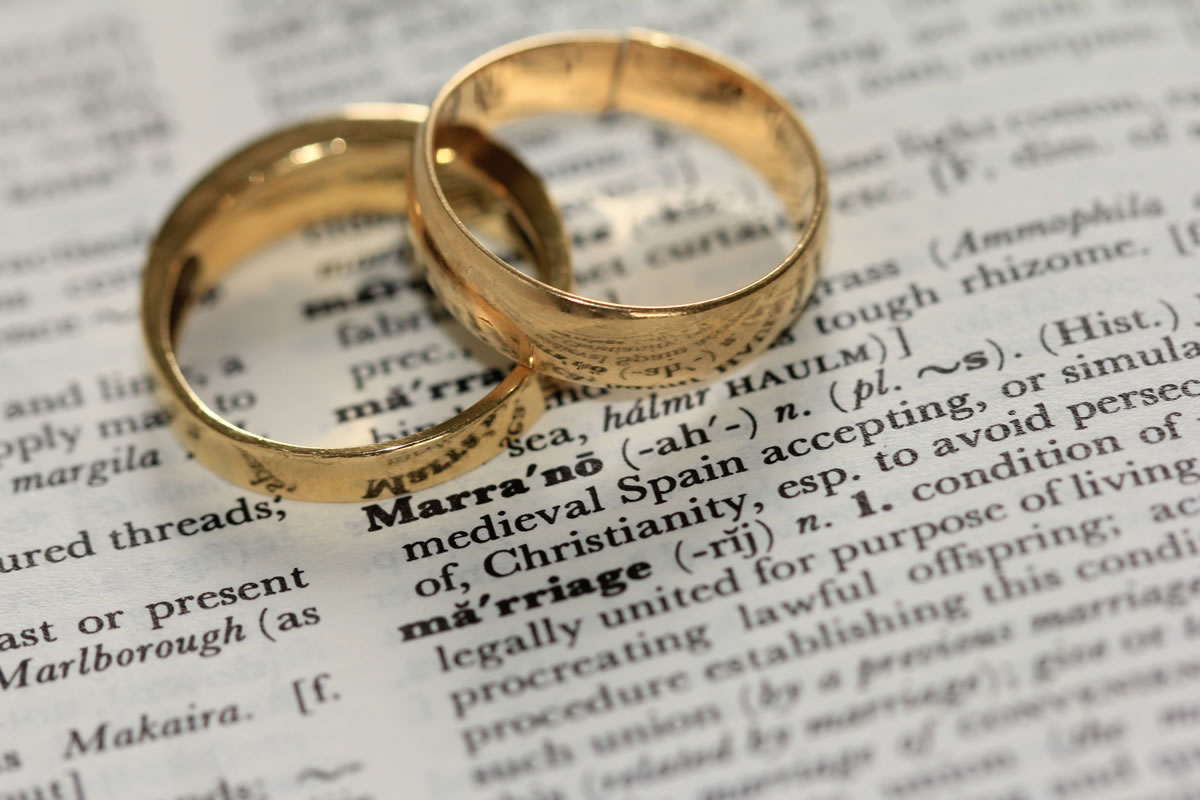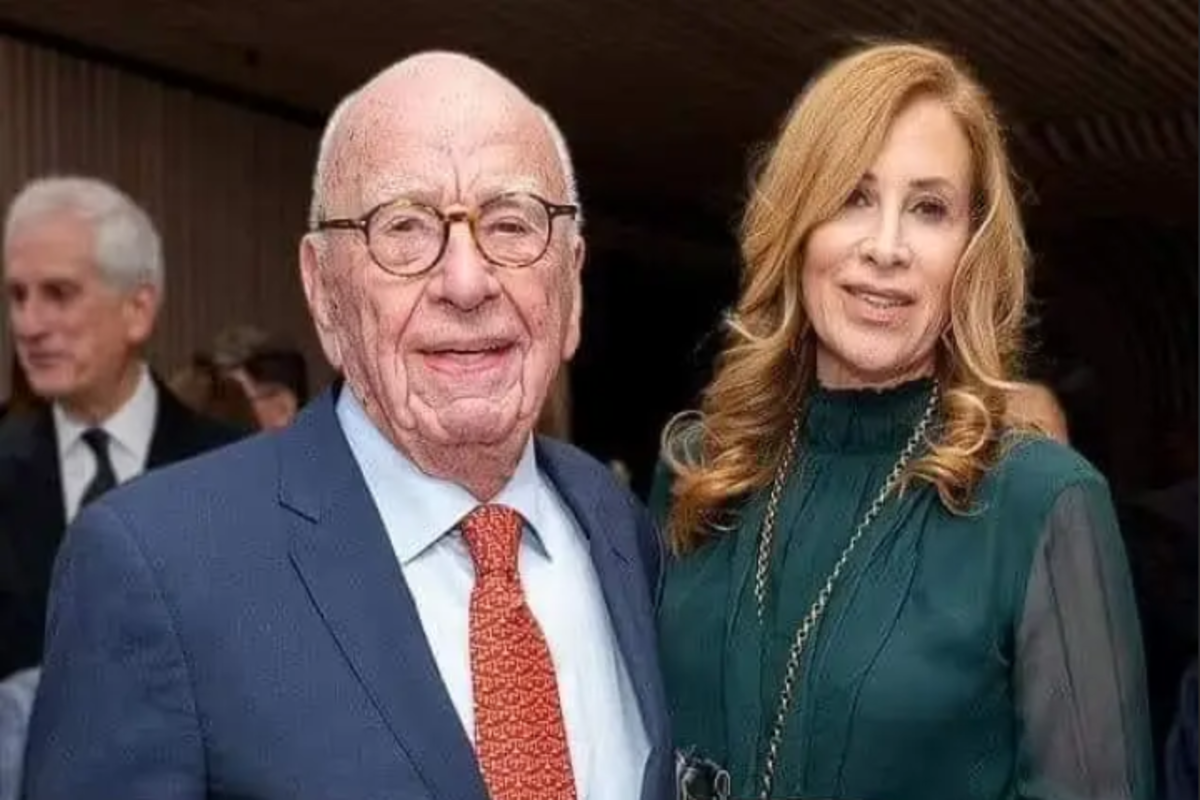Earlier this year, Paul Dolan, a professor of behavioural science at the London School of Economics and author of the new book Happy Ever After, dropped a rather sizable and highly contested bomb into the debate on modern marriage.
Despite decades of fairy tales and a multi-billion-dollar wedding industry conspiring to persuade heterosexual women that marriage and children are a one-way ticket on the happiness express, it’s all a lie.
According to him, married women with children are the “unhappiest” portion of the population.
This epiphany was rather difficult to digest, coming so soon after the publication of All the Rage: Mothers, Fathers and the Myth of Equal Partnership by the US-based Darcy Lockman, in which she made swift work of dispensing with any shred of hope harboured by heterosexual women convinced that — should they choose marriage and children — their relationship would be different.
Impossible, declared Lockman, who believes that “equal partnership”, the sharing of house and care work within a committed heterosexual relationship, is a “myth” that has failed to materialise due in no small part to a largely successful male resistance.
Both books have led some to ask, “Men, marriage, who needs them?” and reignited an age-old debate about feminism and marriage.
UK writer and activist Caroline Criado Perez even went so far as to suggest a “marriage strike”.
Are feminism and marriage mutually exclusive?
So are feminism and marriage mutually exclusive? Opinion has always been divided.
In the 18th century, Mary Wollstonecraft published A Vindication of the Rights of Women, in which she described marriage as a form of unpaid labour that stripped women of the few rights they had.
At the height of women’s suffrage in the 19th century, some suffragettes relied on their status as married women to establish a kind of moral authority, while others, like Susan B Anthony, were steadfast in their intention never to marry.
“I could never give up my life of freedom to become a man’s housekeeper,” said Anthony.
In 1923, trailblazing aviator Amelia Earhart wrote a letter to her fiance in which she tried to extract a promise of equal partnership and ensure he, and marriage, would not keep her from pursuing her dreams.
“Let us not interfere with the others’ work or play…I cannot agree to endure at all times the confinement of even an attractive cage.”
As the couple left their no-frills wedding ceremony, the judge addressed Earhart as Mrs Putnam, to which she responded, “Please, sir, I prefer Miss Earhart” (that clears up where Earhart stood on the related, and equally loaded, feminist question of whether or not to take your husband’s name).
Flash forward to the high-water mark of second-wave feminism in the 1970s, and marriage was a key battleground.
)
Many argued for equal partnerships while also working to jettison the remaining legal aspects of marriage that made women subordinate to their husbands.
Ruth Bader Ginsburg was very, very busy.
At the same time, feminists like Shulamith Firestone, Kate Millet and Germaine Greer were more positively inclined towards the “burn it to the ground” camp.
The 21st century guide to a ‘feminist wedding’
In more recent times, a number of high-profile third-wave feminists have opted to march down the aisle.
We have seen a series of essays from the likes of Jessica Valenti, Laura Bates, Lindy West and Jill Filipovic, in which they try to reconcile their decision to get married with their feminist principles — alongside a how to guide for a “feminist wedding”.
Never one to let a good marketing opportunity pass, the wedding industry has embraced the concept of “feminist weddings”.
Type “feminist wedding” into the Brides Magazine search engine, and you’ll pull up countless articles with titles like, “How the Bridal Shower Was an Early Act of Feminist Rebellion” and “How Bachelorettes Can Be Sexy Without Sexism”.
“Just because you’re a feminist and getting married, marriage doesn’t become feminist,” Dr Meagan Tyler, a professor of feminist theory at RMIT in Melbourne and author of the essay, Saying I Don’t: Moving Beyond Marriage, told me.
In her essay, Tyler argues, “only the death of marriage can bring about the hope of more genuine equality for all”.
Point taken. I concede this has all gotten rather silly. Bridal showers as feminist rebellion? Spare me.
The case for feminist marriage
Still, I still think there is a case to be made for feminist marriage, and here’s why.
Looking back over the more recent feminist essays in relation to marriage, I believe the authors bought into a narrative around marriage that has long pervaded the broader culture: marriage as a conduit to “happily ever after”.
A feminist marriage takes continued vigilance, with a couple — over the longer term — working in common cause to name and unpick the structures and cultural expectations that have made marriage so oppressive.
Yes, there’s a lot of individual negotiation and ongoing, sometimes difficult, conversations.
But there also has to be an alliance between the individuals in the relationship to challenge the culture and structures that make it difficult to live feminist values within a marriage, whatever your intentions.
For example, the unfair distribution of parental leave in favour of women in many parts of the Western world or the lack of access to affordable childcare.
Or how about that gender pay gap, which contributes to a kind of Realpolitik, with many women (who often earn less than their male partners) staying home or working part-time. Is that a real “choice”?
If you tinker around the edges of the wedding ceremony itself — chuck in the odd feminist reading, do away with the virginal white dress, walk yourself down the aisle — and think you’ll drive off into the sunset “happily feminist married ever after”, you’re wrong (the jury is still out on how that’s going to work out for one of the more recent public feminists to wed, Meghan Markle).
)
I believe third-wave feminists, occupied by other issues (as one, guilty as charged), to a large extent abandoned the domestic front because all the research suggested attitudes were changing.
Such optimism is evident in all the more recent feminist wedding essays — call it a kind of marriage exceptionalism.
Now, a few years down the track, we are confronting the fact that change hasn’t happened.
This generation, regardless of the best of intentions, aren’t living their values.
In particular, as soon as they have children, married or not, they revert to gendered stereotypes.
A renewed call to arms on the domestic front
What this tells me is that it’s time for a renewed call to arms, and for feminists who opt for marriage (and it should always be a genuine choice) and their purportedly equality-minded partners to expressly take up the domestic front again.
The personal is, once again, political. It’s time for a new reckoning on the home front.
In fact, judging by the number of viral essays giving voice to women’s anger on all things domestic democracy, emotional labour etc, I believe it is already well underway.
For the longer view on the prospect of feminist marriage, I turned to the historian Stephanie Coontz, whose seminal book, Marriage, A History, was cited in the US Supreme Court’s decision on marriage equality.
Coontz, who has written about how the institution of marriage has evolved over time (it’s only been about love for 200 or so years), is well placed to judge marriage’s capacity to continue to evolve, perhaps becoming more feminist in the process.
“The truth is that marriage may not be inherently oppressive, I no longer believe it is, but it’s been oppressive for a very long time, so there’s a lot of sediment built up that needs to be excavated,” says Coontz.
“But good intentions on both sides are not enough.”
The question is, do some of us want to undertake the long-term project of that excavation, or should we just bulldoze it?
)
For me, an aim of feminism has always been culture change, and changing the culture of marriage (and the broader culture that places a very narrow definition on what it means to be a husband or a wife) seems like a worthy enough pursuit.
 Gistfox Your News Window To The World.
Gistfox Your News Window To The World.





